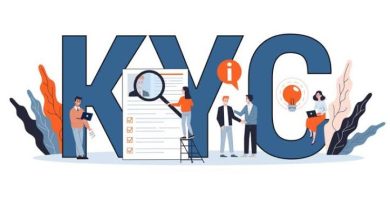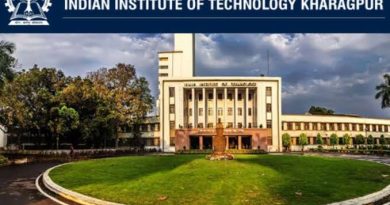10 major changes in 2020
2020: There will be a change in the rules for hallmarking of jewelry:
The Bureau of Indian Standards (BIS) hall marking will soon be made mandatory for jewelery and artifacts of gold to prevent fraud in the name of gold from people and to get them pure gold. The central government will also issue a notification on 15 January 2020 regarding this. BIS hall marking on gold jewelry will be mandatory from 15 January 2021, exactly one year after issuing the notification.The Bureau of Indian Standards has opened 877 centers in 234 districts but only 40% of the hallmarking of jewelery is taking place. At present, only 26019 jewelers have hallmark certified gold, while there are 6 lakh big and small jewelers across the country.
Life insurance policy rules will change:
The Insurance Regulatory and Development Authority (IRDA) has introduced the new guidelines for linked and non-linked life insurance policies from February 1. Insurance companies can make changes in policies till 31 January. All the insurance companies have to change their policy under the new guidelines. IRDA says that its guidelines will apply to the new insurance policy. This will not have any effect on the current insurance policy. The premium and benefit of the old insurance policy will continue to be applicable as before.
The new GST system will be implemented:
The process of filing returns in GST One and Two is changing once again. From April 1, returns will be filed through the new form Annexure One and Two. The new system will start on trial from 1 January 2020. These changes are being made to make it easier to file returns. In the new system the slabs were fixed below and above 5 crores. Those earning more than Rs 5 crore will have to file RET-1 every month, while those with less than Rs 5 crore will have to file RET-2, RET-3.
One nation, one ration card will be applied:
From June 1, the ‘One Nation, One Ration Card’ scheme will be implemented nationwide. With the implementation of this scheme, ration card can be taken from any part of the country. Presently, the facility of POS machines for ration cards has been started in 14 states. It will be started in other states soon. So far, the ration card has been made from the ward or panchayat, goods can be purchased from the government ration shop of the same area. Those who live in other states for better job opportunities will benefit the most from this scheme.
5 star AC, fridge will be expensive:
The price of a fridge labeled Five-Star can increase from Rs 5,000 to 6,000 in January. The Consumer Electronics and Appliances Manufacturers Association (CEAMA) has expressed these possibilities. Accordingly, new energy labeling rules will come into force from January 2020. Manufacturers will have to use vacuum panels instead of foam for cooling in five-star range ACs and refrigerators. This will increase the cost of producing five-star labeled ACs and fridges.
Vehicle prices will increase with the implementation of BS-6 standard:
BS-6 standards are to be implemented for registration of vehicles across the country from April 1 next year. With the implementation of these strict standards to reduce air pollution, the prices of small diesel cars will be increased. This can increase the prices of scooters and bikes by Rs 2000 and the price of cars from 6000 to 10000. Vishnu Mathur, director general of SIAM, an association of automaker companies, says that the expenditure on the necessary engine changes for vehicles conforming to BS-6 standards is almost the same in all types of passenger vehicles.Therefore, the price of all small and big trains will increase equally. However, the biggest increase in percentage terms will be in the prices of small cars.
Fastag will become mandatory:
From January 15, payment will be made through Fastag on the toll plaza of the National Highway. Even on January 15, if the vehicle is not fastened, then the driver will have to pay double toll tax on passing through the toll plaza. Fastag is a radio frequency identification tag that is mounted on the windshield of the vehicle, so that the sensor on the plaza can read the fastag when the vehicle passes the toll plaza.Equipment installed there automatically collects toll tax. According to NPCI data, toll tax is currently being collected at 537 toll plazas in the country through Fastag.
NEFT transactions will be free of charge:
There will be no charge from January 1, 2020 on National Electronic Funds Transfer (NEFT) used for online fund transfer. The Reserve Bank of India (RBI) has given this exemption for account holders with savings bank accounts. Saving account holders banking with the mobile banking app do not have to pay any charge. Up to 2 lakh rupees can be transferred from NEFT. You do not have to pay any fee for this, you only need internet. This facility is available 24 hours a day, seven days a week.
PF will get deducted at will:
Employed people will now be able to get less provident fund (PF) deducted at will. The government has given this facility to the employees in the new Social Security Code Bill 2019. The bill was approved by the Union Cabinet and is now likely to be introduced in Parliament soon. This facility will increase the take home salary or salary in hand of the employees.The new bill states that the employer, the company employing it, will have to pay its full share of 12 per cent. The employer will not get any benefit from this facility. At present, both employees and employers have to contribute 12-12% of the total salary to the Employees Provident Fund (EPF).
OTP mandate to withdraw money from SBI ATM:
State Bank of India (SBI) is going to change the way it withdraws cash from its ATMs from 1 January. The bank is going to introduce a one-time password (OTP) based cash withdrawal system to prevent fraudulent ATM transactions. Under this, to withdraw cash from the ATM from 8 am to 8 am, you have to tell the OTP on the mobile number registered with the bank. This rule will be applicable to cash transactions of more than 10 thousand rupees.




